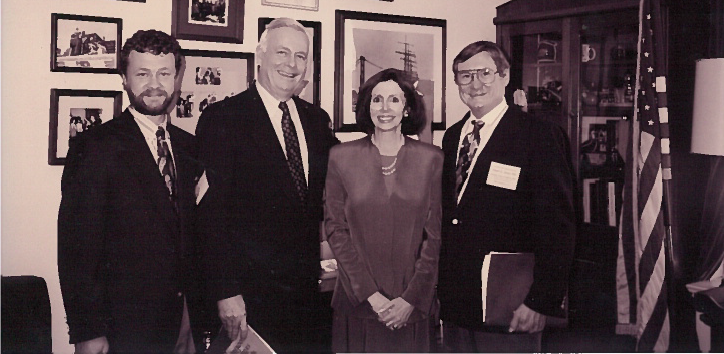Promoting Partnerships To Improve Veterans’ Health
- Home
- About NAVREF and the NPC
- What is an NPC
What is an NPC?
In 1988 Congress passed legislation that allowed the Department of Veterans Affairs (VA) medical centers to establish nonprofit research corporations (NPCs), forming a unique public/private partnership that dramatically broadened VA’s ability to benefit from private and non-VA public support for research conducted at VA medical centers.
A Brief History

With passage of P.L. 100-322 in 1988 [codified at 38 U.S.C. §§7361-7366], Congress authorized VA medical centers to establish nonprofit research corporations to serve as “flexible funding mechanisms for the conduct of approved research and education” [§7361(a)]. Twenty-five years after enactment, VA had some 80-85 separate, state-chartered corporations scattered throughout the country, all subject to VA oversight and regulation.
Prior to 1988, private and non-VA federal funds available to support VA-approved research could be administered only through ill-suited mechanisms such as General Post Funds. These were established primarily to give gifts to veterans and to administer their bequests, and they are subject to restrictive policies regarding use of funds. Alternatively, non-VA funds were administered by the affiliated medical school which charged substantial "overhead" rates and generally retained such amounts for university purposes. Clearly, a more effective mechanism for handling non-VA research funds was needed.
After deliberation, Congress settled on allowing VA medical centers to establish independent, state-chartered nonprofit corporations. The objective was to delineate separation between VA and industry partners, and to provide the convenience and oversight of local management. Making them subject to federal oversight provided assurance that they would be operated in accordance with the highest standards of fiscal and administrative management.
The initial purpose of the VA affiliated NPCs was to facilitate research at the VA medical centers where they were established. Subsequently, Congress expanded their authority to include supporting VA’s patient and staff education and training missions.
Intersection of the NPCs and VA
Nonprofit research corporations (NPCs) play a crucial role in advancing VA research and education initiatives through a unique collaboration with the Department of Veterans Affairs (VA). Together, they form a dynamic public/private partnership that significantly enhances the quality of care for our nation's veterans.
Financial Impact and Revenue Sources
NPCs collectively generate over $310 million in revenue annually, with a notable increase in the administration of non-VA federal grants, now comprising approximately 70% of total revenues. These grants, primarily from agencies like the Department of Health and Human Services (NIH) and the Department of Defense, support a wide range of research projects and initiatives.
Supporting VA Research and Education
NPCs allocate their expenditures to support VA-approved research projects, education and training activities, and the business operations of the corporation itself. This includes funding salaries for research personnel, managing clinical research centers, facilitating grant submissions, and providing seed funding for VA investigators.
Diverse Services and Support
Beyond financial contributions, NPCs offer a diverse range of services to their affiliated VA medical centers and researchers. This includes quick turnaround on administrative tasks, assistance with clinical trials, mentorship programs for college students, and support for upgrading research facilities and equipment. Additionally, NPCs facilitate patient access to the latest drugs and treatments in a supervised setting, often covering associated costs.
Balancing Oversight and Flexibility
While subject to multiple layers of oversight from both national and local entities, NPCs operate with a degree of flexibility to adapt to local needs and priorities. Each NPC develops its own policies and procedures to support training and research initiatives, ensuring a tailored approach that meets the unique requirements of its medical center.
A Testament to Success
The VA-NPC partnership has evolved significantly since its inception, demonstrating positive benefits for veterans, VA research, and VA researchers alike. As the partnership continues to grow and adapt, its contributions to advancing medical research and education for veterans remain unparalleled.
A Legacy of Innovation
Reflecting on the success of the NPC model, the late Congressman Sonny Montgomery remarked, "Ten years ago these foundations were just an idea. Obviously, they were a good idea. Now I can't imagine VA research without them." Indeed, the VA-NPC partnership stands as a testament to the power of collaboration in advancing healthcare for our nation's heroes.
